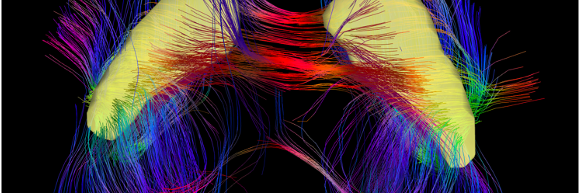


The neuroscience Ph.D. program is designed to be completed in a minimum of four years. The student and advisor work together to develop a program of study that must be submitted to the program director at the end of the first semester. To become a candidate for the doctoral degree, students must:
Details about each of these requirements are presented below.
The doctor of philosophy in neuroscience requires a minimum of 42 credits, including nine credits of dissertation. All students must submit a planned program of study, created with their primary advisors, by the end of their first semester.
Required Courses (33 credits):
Fall - Year 1
Spring – Year 1
Submission of Program of Study
Fall – Year 2
Spring – Year 2
Qualifying Exam at end of year 2
Fall – Year 3
Spring – Year 3
Defense of dissertation proposal in year 3
Fall – Year 4
Spring – Year 4
Defense of dissertation in year 4
Students in the neuroscience Ph.D. program are allowed to take a maximum of 21 credits of combined electives and research, where no more than 15 credits may be research. Additional electives or research credits can be taken but will not count towards the required 42 credits for graduation.
A maximum of nine credits earned at another U.S. institution may be applied to the doctoral degree if not used to complete a previous degree. Grades must be a B or better to be acceptable for transfer and no older than five years.
At least four academic years of graduate work are normally required for the Ph.D. degree. At least two continuous academic years must be devoted exclusively to full-time study in the major field in residence at the University of Delaware.
The oral exam will be evaluated through both a written and an oral component. Students will become Ph.D. candidates upon passing the qualifying exam and the successful proposal of their dissertation research. The exam will occur after the end of the second full year in the program.